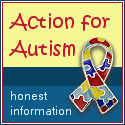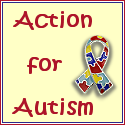Today the autism twitter community was buzzing about the rise of autism cases in California.
It made clear no one bothered to read the article of Mercury News.com written by Sandy Kleffman.
OK, the title created the misunderstanding.
"Autism in California increases twelvefold" it said.
But why people retweet articles without reading them is a big question to me.
Why send your friends a text you haven't read yourself?
The first sentence states:
"California saw a twelvefold increase during the past two decades in the number of autistic people who are receiving services through regional centers, a new state study reveals."
This simply means that more people with autism have turned to the regional centers for support.
This doesn't mean that the number of autistic people has increased.
What bothers me in the article is the definition of autism.
"Autism is a severe developmental disorder marked by communication difficulties, an adherence to routines and a lack of interest in socializing with others."
Many autistic people, and we're talking classic autism here, don't have a lack of interest in socializing.
Because of their communication difficulties, they problems understanding social processes and the lack of acceptance they encounter, autistic people feel not well equipped to socialize.
Many do feel an inner longing to belong to their peergroup, to other groups, to have friends, but they sense a distance they can't bridge themselves without support.
It's one of the reasons autistic people seek help at support centres.
The deputy director of the community services and support division of the state Department of Developmental Services, Julia Muller, is cited in the article.
She states that her agency has developed guidelines on diagnosing autism and effective interventions.
What we need to be able to get comparable diagnoses is one clear system.
Not each division making up it's own rules.
The DSM IV, and preferably it's revision the DSM-IV-TR needs to be used to reach proper diagnoses.
These guidelines are developed by experts and are only open for discussion as long as the development of DSM 5 is concerned.
Subscribe to:
Post Comments (Atom)







0 comments:
Post a Comment